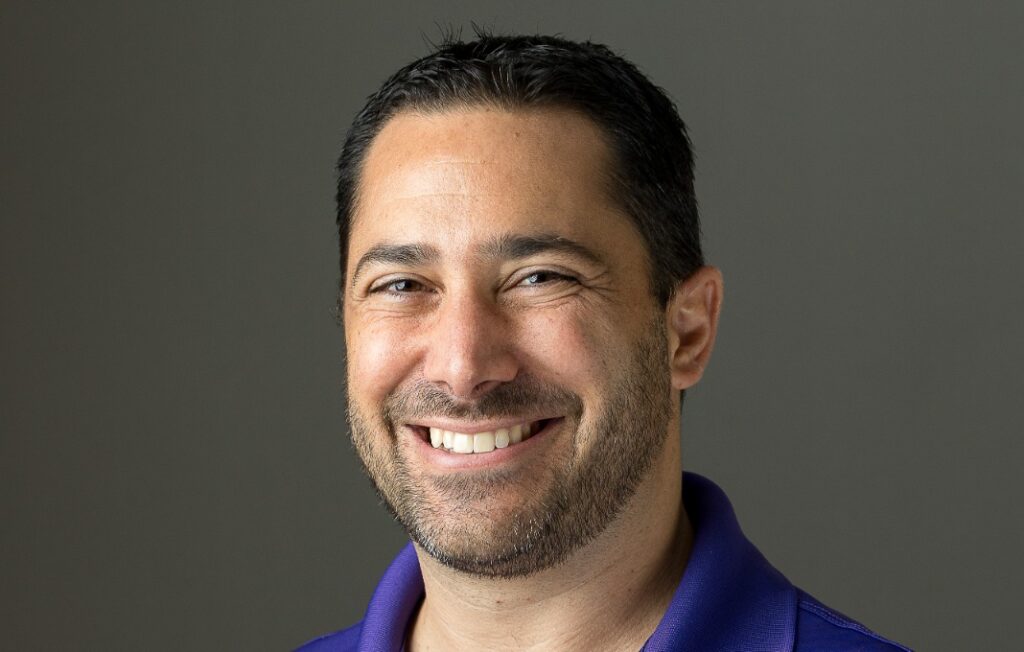While there’s no shortage of advice and ideas floating across LinkedIn, authenticity can often seem in short supply. There’s such an overabundance of personal brand building and happy talk (“Aw, Shucks, Look What I Did!”) that true voices punch through.
So I was thrilled, and a bit surprised, honestly, to discover that one of those breakthrough voices belonged to Sharon Jautz, one of my all-time favorite colleagues, a human resources pro who literally saw just about everything you can possibly imagine while running HR back in the day for Playboy and Forbes (where we worked together), not to mention decades at Fairchild Publications (now Conde Nast) and Reed Business.
Now head of Head of HR for Ascential’s Marketing Group and Product Design brands in North America, I keep finding myself gasping, cackling or a combo of both when her posts—largely aimed at helping young workers navigate the reality of the workplace—show up in my feed. Her cutting aphorisms crackle with the candor I find missing from much of the corporate public square. It’s the voice of the straight-talking, sage coach-managers I grew up around, who preached self-reliance in the office jungle. Human, helpful—hardly soft—and unafraid:
- “Work/life balance is your responsibility,” she wrote in one post. “Your manager doesn’t have a secret decoder ring to determine if you’re working beyond your capacity. Speak up and take control of what matters in your life. #worklifebalance”
- “I am constantly putting things where they don’t belong, like the cereal in the fridge, or my keys in the laundry, or my faith in other people. 🙂 Your word, at the end of the day, defines your integrity. If you say you’re going to do something, do it. And if you don’t or can’t, get out in front of it immediately. Don’t ever compromise your personal integrity. It’s all you’ve got.”
- “It is a complete waste of time to argue with your manager (or anyone, really) about their perception of you. Rather than argue, say, ‘We’ll have to agree to disagree on what you’re sharing. That said, I hear you and I’ll be sure my behavior moving forward reflects what’s important to you.’”
- “Pro Tip: For the love of all that is holy, please don’t send an IM that says ‘Hi.’ Instead, say ‘Hi. Do you have the monthly sales report?’”
- “Your ability/inability to manage conflict, your ability/inability to quickly problem-solve and your relationship management skills are what will exhaust you at work. Not necessarily the workload.”
“I find, being the age that I am actually right now, the things that I struggle with at work are so different than what a younger generation struggles with,” she told me recently when I called her up to ask why she’d taken to posting like this on LinkedIn. “What I struggle with is, you know, Google documents—like, am I sharing this with the world? But my colleagues don’t struggle with stuff like that. Instead they struggle with, ‘How am I going to deal with this really sticky problem?’ And I always think, well, to me, that’s easy. Here’s how you do that. I thought, you know what? I should just share it. I should just like put it out there because if I’m thinking it, I bet you other people are too.”
So what’s she seeing that’s worth leaders in the corner office knowing these days? I asked her about that, as well as some of my favorite posts that she’s written in the last year or so. Excerpts of our conversation, edited for length and clarity, follow:
One of the things I was struck by that you wrote not too long ago, you said: “The great resignation? Hardly. I call it the great realignment.” What do you mean by that? What are you seeing?
I’d like to think that people have rediscovered their bravery and that, in fact, hanging onto a job because of fear that you have to have a traditional job, you have to pay the bills, got turned on end. And we were okay. It’s not like it wasn’t terrible—because it was—but actually we realigned and created a new way of working. People now are throwing their hands up in the air saying, “Why do I have to come in to work? I don’t.” So I think that’s where people are realigning—they’re seeing that they’re braver, that they are more resilient than they ever thought they could be. And changing the way they work is possible.
Another one that I love from you is: “Please stop trying to staff your team with just ‘A players.’ Sometimes those ‘B’ players that show up, get the work done and take on commitments for the team are just what the doctor ordered. If everyone were an A, it would be the Hunger Games, corporate edition.”
Your B players sometimes really get overlooked, the people that can be counted on to show up, to do the job and do it well. They’re not lighting the world on fire. They’re not coming up with the next greatest invention. But not everybody has to. The work has to get done at the end of the day. If everybody’s up in the stratosphere “strategizing” but there are actual fires on the ground that need putting out, you also need that B person. Who’s going to show up and, and know how to get stuff done and move that needle? You need a combination of the “strategizers” and the inventors and the just crazy smart people. Then you need the smart people, the diligent people, the people that you can rely on to show up and actually get the job out the door.
One of the other things you made fun of was that companies want “rockstar” employees, “as rockstars are known for punctuality, even tempers and a desire to work in a corporate environment.” Talk a little bit about the desire to bring in these rockstar employees and what you’ve seen actually happen with that.
That’s sort of my dig at corporatism. It’s one of those words that just drives me nuts. More important than having an incredible skill set and curiosity is they’ve got to align with the culture. I always say to people, give me nice and give me curious, and I can train the rest. Right? But I can’t train you to be nice. And I can’t train you to be curious and interested and finding out more. So if you don’t have those attributes, you can come in guns ablazing, but you’re actually not going to be able to sustain that at any company. You’re not going to be a good fit. People are going to think you’re just exhausting.
One thing that you wrote about—and there were a lot of comments around this—was when a young person had blown up on social media, and you defended them and said, “Are we not allowed to make any mistakes anymore? Is everything we do going to trail everybody?” Talk a little bit about hiring when everything everyone has ever done back to grade school is available for review.
I remember that specifically, it was about that Teen Vogue editor [Alexi McCammond]. I thought, my God, if somebody had shown a light on stuff I had done or said, when I was—I can’t remember the specifics of her case—but it was like something she said 10 years ago, when she was actually like a 16-year-old child. She said some unkind, insensitive and terrible remarks about Asian people. I thought to myself, my God, here’s this woman who was now 27. An evolved, educated woman who made this error in judgment when she was a 16-year-old child.
And instead of backing her to say, “Listen, she’s got the chops for this job. She’s proved her way. She’s reformed her way of thinking. She’s no longer this person she was when she was 16 years old—as I hope you all are not—and she deserves a chance because she erased the comments. She disavowed them and was embarrassed by them.”
So it wasn’t like there was no reform or understanding—there was. And Conde Nast just decided to fire her. They went with the “woke masses” that were just like, “Get rid of her, get rid of her.”
I’m sitting here going, “She was 16-year-old child when she said those foolish things! And, by the way, she’s taking responsibility for it. Give her a chance. Is there are no path to redemption?” Sometimes there isn’t, right? But I think a 16-year-old child saying something that’s brought to light 10 years later, when she’s an adult, deserves some consideration.
I’d love to leave with this, it’s one of my favorites. This is like 10 months ago or so. You wrote: “Here’s a suggestion for you maintain mental wellness: Write letters. The first one is to yourself, outline your achievements. What made you laugh? What was the highlight of your week? The second is a letter to a family member or a friend. People love to get personal mail. Even if the message is as simple as I’m thinking of you, loving kisses. Focus on kindness to yourself and others.”
I’m a letter writer. My grandmother, when I was a little girl, she was a secretary in her career days. She never wanted to lose her skills. Every Friday she’d have my grandfather take out the typewriter and we would have correspondence day. She would write to her sister in Connecticut. We were in Massachusetts at the time, and I would write to my parents. Every Friday that typewriter came out and I got a piece of paper and a pencil and I could write my letter. I got into writing letters very early and I guess, yeah, it’s very cathartic for me. Pen to paper, right? The old-fashioned way.








